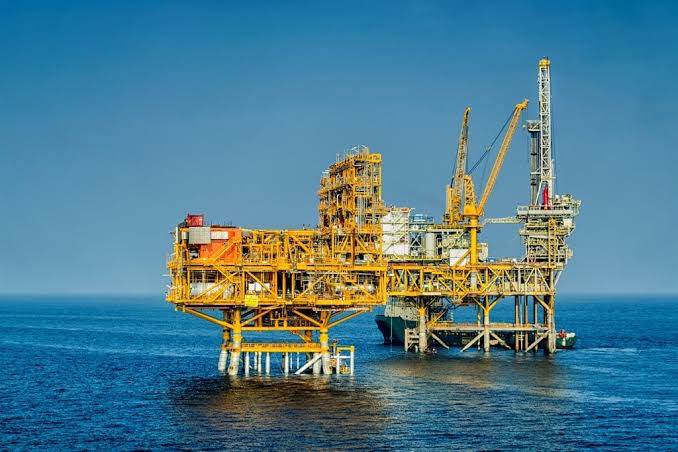Key Points
- West Africa’s offshore oil sector is a vital economic driver.
- Technology and sustainability are reshaping the future of oil exploration.
- Effective governance is key to balancing growth and sustainability.
Offshore oil exploration in West Africa is more than an industry—it’s a lifeline. For decades, countries like Nigeria, Ghana, Angola, and Senegal have relied on oil revenues to fund development, create jobs, and attract foreign investment. Offshore drilling has been at the center of this economic engine, shaping the region’s fortunes and fueling its growth.
But the landscape is shifting. With the world increasingly focused on renewable energy and sustainability, the oil sector faces mounting pressures to adapt. For West Africa, this is both a challenge and an opportunity. How the region navigates this transition will determine whether offshore exploration continues to be a source of prosperity or fades into history.
A vital economic driver with growing challenges
West Africa’s offshore oil industry has been a game changer. From Nigeria’s prolific fields in the Niger Delta to Ghana’s Jubilee and TEN projects, oil has powered economies and created millions of jobs. These operations generate billions in revenue annually, fund critical infrastructure, and support essential public services.
Yet, this dependence on oil comes with risks. Global oil price fluctuations can wreak havoc on national budgets, leaving economies vulnerable to shocks. For example, when prices plummeted in 2020, oil-dependent nations across the region faced budget deficits and economic crises.
Despite these challenges, the potential of offshore exploration remains enormous. Untapped reserves in deepwater and ultra-deepwater fields offer opportunities to diversify revenue streams and attract foreign direct investment. But realizing this potential requires overcoming technological, environmental, and social hurdles.
Technology and sustainability: The keys to the future
Technology is transforming offshore exploration. Advances like seismic imaging, 4D modeling, and automated drilling are making it easier to locate and extract reserves, even in ultra-deepwater fields. For West Africa, where infrastructure can be limited, these innovations are critical. They help reduce costs, improve efficiency, and make challenging projects viable.
Sustainability is another driving force. Global pressure to reduce carbon emissions is reshaping the oil industry, and companies operating in West Africa are taking notice. Some are integrating renewable energy into their operations, using solar and wind power to reduce their environmental impact. Others are adopting cleaner technologies to minimize the risks of spills and emissions.
But sustainability isn’t just about the environment—it’s also about people. Offshore exploration has historically been linked to ecological damage and social unrest. Coastal communities often bear the brunt of oil spills and resource mismanagement. To secure a future for offshore exploration, companies must prioritize community engagement, share the benefits of oil revenues, and invest in local development.
Governance and global trends: The road ahead
Effective governance will play a decisive role in shaping the future of offshore oil exploration in West Africa. Transparency and accountability are critical to attracting investment and ensuring that oil revenues benefit the broader population. Initiatives like the Extractive Industries Transparency Initiative (EITI) are helping, but there’s still work to be done.
The global energy transition adds another layer of complexity. As the world moves toward renewables, demand for oil is expected to decline in the long term. For West Africa, this means balancing short-term gains from oil with investments in cleaner energy sources. Gas, often a byproduct of oil drilling, is emerging as a bridge fuel that can ease the transition to renewables.
Collaboration will be key. Partnerships between governments, oil companies, and international organizations can drive innovation, improve efficiency, and ensure sustainability. Regional cooperation, like joint projects between Senegal and Mauritania, offers a model for sharing resources and reducing risks.
A balanced approach to growth and sustainability
The future of offshore oil exploration in West Africa is at a crossroads. On one hand, the region has the potential to remain a global energy powerhouse. On the other, it faces increasing pressure to align with global sustainability goals. Navigating this dual challenge requires a balanced approach that prioritizes innovation, governance, and community engagement.
Investments in cutting-edge technology can unlock untapped reserves and make operations more efficient. Strong governance can ensure that oil revenues are used to fund development and reduce inequality. And by integrating renewable energy into offshore projects, West Africa can position itself as a leader in the global push for sustainability.
The stakes are high, but so are the rewards. Offshore oil exploration has the power to transform economies, uplift communities, and drive innovation. With the right strategies, West Africa can harness this potential while building a more sustainable and inclusive future. The next chapter in this story is one of opportunity—if the region is ready to seize it.



